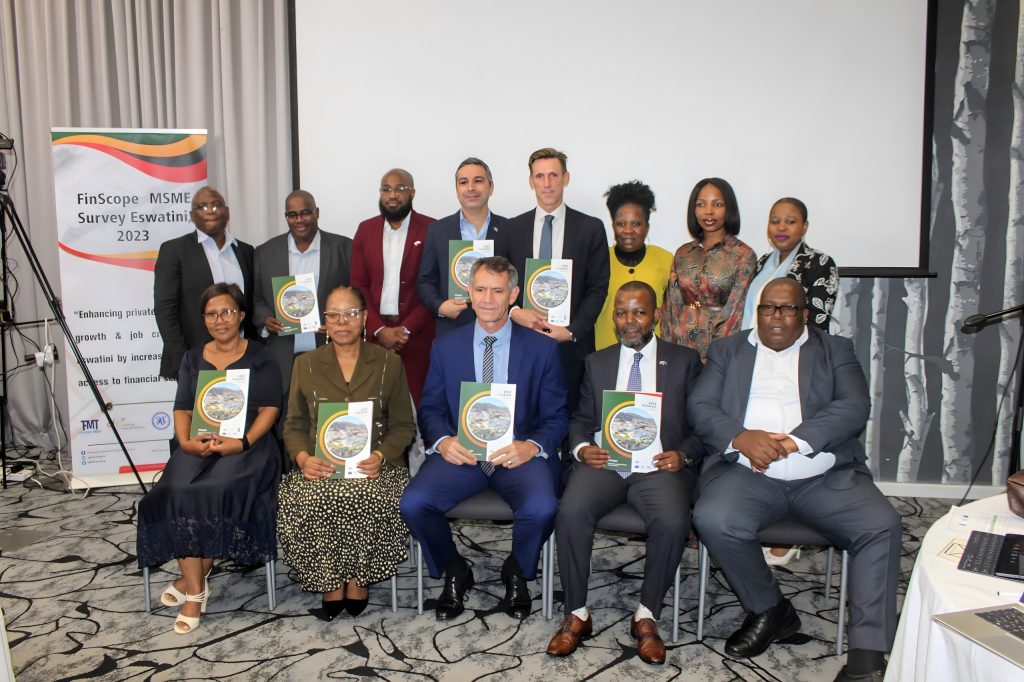
More than 75% of Micro, Small, and Medium Enterprises (MSMEs) in Eswatini operate informally, limiting their access to essential financial services and growth opportunities.
This is according to the findings of the Blended FinScope MSME Survey 2023, which was officially launched at the Hilton Garden Inn, yesterday.
This revelation underscores a long-standing challenge in the country’s economic landscape—how to transition small businesses from the informal to the formal sector to unlock growth opportunities.
The survey aims to assess the size and scope of MSMEs in Eswatini, analyze their access to financial services, and identify barriers to their development.
Despite MSMEs being recognized as the backbone of Eswatini’s economy—contributing significantly to employment creation, poverty alleviation, and overall economic growth—a large proportion of them remain unregistered and operate outside formal financial systems.
This means they lack access to essential resources such as business financing, insurance, and market linkages, which are crucial for sustainability and expansion.
The findings mirror those of the 2017 MSME Financial Inclusion Study, highlighting that limited progress has been made in encouraging businesses to formalize. Instead, the new data suggests a decline in the number of MSMEs using banking services, a worrying trend that could further marginalize small businesses from mainstream financial support.
Stakeholders at the survey launch highlighted several key reasons why MSMEs struggle to formalize, including:
- Cost and Complexity of Registration – Many entrepreneurs find the process of business registration costly, time-consuming, and bureaucratic, discouraging them from transitioning into the formal economy.
- Limited Access to Finance – Without formal documentation, small businesses struggle to access loans and credit, keeping them in a cycle of informality.
- Lack of Awareness – Many MSMEs are unaware of the benefits of formalization, including access to government support programs, funding opportunities, and legal protections.
According to Obert Maphosa, a consultant from FinMark Trust who presented the report, Eswatini businesses that register do so for compliance reasons, as they wish to avoid the penalties associated with non-compliance.
Surprisingly, only 1 in 10 businesses view formalization as a pathway to securing finance, indicating that access to credit is not a strong motivator for registration.
Additionally, Maphosa emphasized that business owners do not generally avoid registration due to tax obligations, contradicting a common belief. Instead, the biggest barriers remain perceptions of being ‘too small’ to register and financial constraints in completing the registration process.
The formalization rate is significantly higher among medium-sized businesses, whereas individual entrepreneurs and businesses in rural areas—particularly those owned by women—remain largely informal.
The highest levels of formalization are seen in business services, wholesale, and community-based industries, while the construction sector lags.
In his remarks, the Minister of Finance Neal Rijkenberg acknowledged the pressing need for policy interventions to address these barriers.
“Together, we can create a landscape where every entrepreneur, regardless of the size of their business, has the opportunity to access the financial services they need to succeed. The launch of these findings is not just an event. It is a call to action. It is an opportunity for us to reflect on the challenges that our MSMEs face and to mobilize our collective resources and efforts toward building a more inclusive financial ecosystem. Let us rise to the occasion and ensure that no entrepreneur is left behind,” he said.

The Minister also emphasized the importance of financial inclusion, as outlined in the National Financial Inclusion Strategy (NFIS) 2023–2028, which prioritizes MSMEs as a key focus area.
One of the survey’s critical findings was that 83% of informal MSME owners are willing to formalize if given the necessary support, particularly in removing registration fees and raising awareness about the benefits of formalization. Entrepreneurs need to see tangible advantages, such as improved market access, financing opportunities, and business growth, rather than merely being compelled to comply with regulations.
